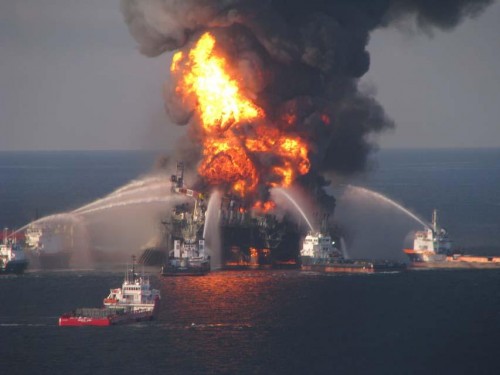
Joseph Sherman
September 24, 2010
BOEM demands ‘worst case scenario’ planning
September 28, 2010Hidden in the desolate southern portion of Lafourche Parish, the people of Port Fourchon are no strangers to a fight.
With Louisiana’s coastline fading more and more by the day and hurricane protection not where the port would like it to be, Fourchon has consistently pushed forward despite the challenging hand Mother Nature has dealt it.
So that’s why even with the drilling moratorium in place, and the future of the oil field not fully certain, the port’s Executive Director Chett Chiasson said he’s optimistic the slow start to 2010 will just be a small glitch in the port’s future success.
Because after all, fighting off a challenge is just the status quo for these people who have now endured several hurricanes and an environmental disaster in the past five years.
“Things are slow,” Chiasson said. “But we have confidence that it’ll pick up, and it will be better and stronger than ever.”
Currently, according to Chiasson, work in the port is “really slow”, as a result to the Obama Administration’s six-month moratorium on deepwater drilling.
“There’s not a lot of movement when it comes to the servicing of any drilling, especially deep water, because none is taking place here right now,” Chiasson said. “The only work really going on in the Gulf is on the production side, and that is not the majority of our business. The majority of our business out of Port Fourchon is on the drilling side. That’s what takes the most amount of commodities, the most amount of vessels and the most amount of personnel.”
And with that trend also comes a ripple effect.
Because with a very small population of people who physically live on the port, less work means less money in the pockets of those who have their businesses stationed on the port designed to cater to the industry.
“The numbers are down on fuel sales, the numbers are down on water sales,” Chiasson said. “The numbers are down across the board on what is taking place in terms of servicing the oil and gas industry.”
To stay afloat, Chiasson said many people assisted in oil spill cleanup projects.
And with those projects somewhat subsiding, the executive director said work will also come to the port as a result of those who assisted in the cleanup process.
“A big thing that’s about to ramp up is the decontamination of vessels and equipment that’s been working the oil spill,” he said. “That’s going to allow some of the tenants of the port to enjoy some work.”
But like anything else related to the spill, Chiasson said he’s cautioned those involved that it’s not a full-time fix, and no one knows when BP will shut down and move on.
“That won’t last forever,” he said. “We don’t know their timetables in terms of how long they plan to stay.”
Aside from the people of the port being currently out of work, Chiasson said the long-term prognostications of the moratorium are what have he and his staff on high alert.
Not being able to drill until December – that’s one thing.
But what he and his officials fear will be the big playmaker in the post-moratorium Louisiana will be the subsequent stringent regulations that are expected to come out of the moratorium.
“Having it lifted before Nov. 30, or by Nov. 30, that’s just a small piece of the puzzle,” Chiasson said. “That’s actually the smallest piece of the puzzle. Because even when the drilling comes back, they’ll still have to get the permits. That’s the biggest hurdle – the regulations that are going to be put on, and from there, can the oil and gas industry meet the regulations that are going to be set forth? And those regulations are still not finalized yet, so that’s where our big word of this time has come – uncertainty. What is going to happen? When will this be lifted? And what is going to happen when it does?”
Because the worst fear for the port, according to the executive director, is regulations so stringent and costly that offshore rigs move out of the Gulf for good – something he says would be a lose/lose situation for everyone, whether they support or oppose drilling.
“I don’t think the rest of America gets it at all,” Chiasson said. “People not from here have no clue of the supply chain that their energy has to go through to get to them. They don’t understand that is all starts here.”
So the fight is on and the fogginess surrounding the industry the port depends so heavily upon is still months away from lifting.
But despite the challenges ahead, Chiasson said the port will be back and better – it always is.
“We’re going to continue in our effort to expand the port,” he said. “Because the oil industry will come back. And when it does come back, it will come back strong and we’ll be ready to house it.”
A worker welds equipment in front of a barge in Port Fourchon. With work slowed because of the oil spill, everyone, not just workers directly tied to the oil industry, is being adversely affected with a slowdown in work, according to Port Fourchon Executive Director Chett Chiasson. COURTESY PHOTO










